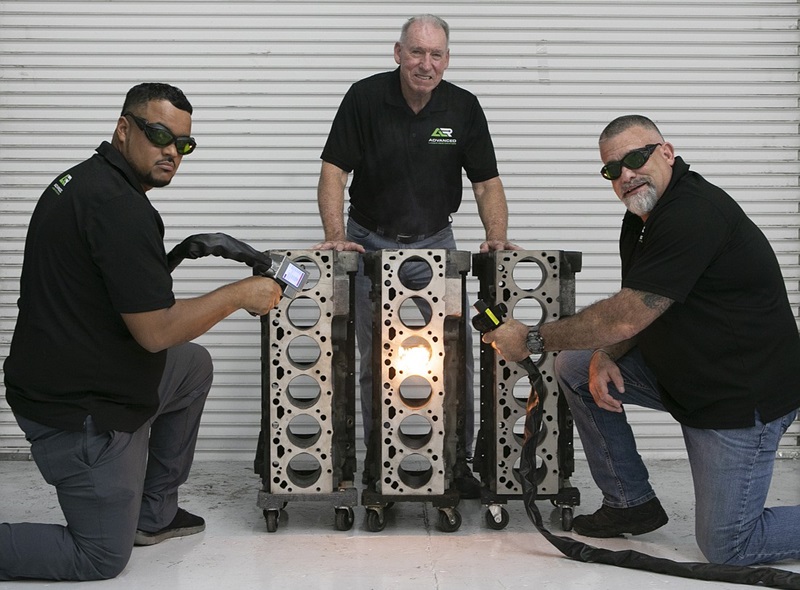If you’re considering a career in healthcare, becoming an ultrasound tech could be the perfect choice. This dynamic profession combines technology, patient care, and diagnostic expertise, providing excellent career opportunities. Ultrasound techs play a critical role in medical imaging and are in high demand across various healthcare settings. In this article, I’ll explore seven exciting topics related to becoming an ultrasound tech that will help you navigate this rewarding field. From educational requirements to job prospects, these insights will set you on the path to success in this fulfilling profession.
1. What is an Ultrasound Tech?
An ultrasound tech (also known as a diagnostic medical sonographer) is a healthcare professional who uses high-frequency sound waves to create images of the internal structures of the body. These images help doctors diagnose and monitor conditions in various organs such as the heart, liver, kidneys, and more. Ultrasound technology is often used in obstetrics and gynecology, cardiology, and musculoskeletal imaging.
Key Responsibilities:
- Conducting Ultrasound Scans: Ultrasound techs perform diagnostic exams on patients by applying gel and using a transducer to capture images.
- Patient Interaction: As an ultrasound tech, you’ll often be the first to see the images, which means you have a crucial role in patient care.
- Technical Knowledge: You’ll work with high-tech equipment, understanding how to capture the clearest and most accurate images.
2. Education and Training for Ultrasound Tech
Becoming an ultrasound tech requires a strong educational foundation. Typically, this involves completing a specialized program in diagnostic medical sonography.
Educational Pathways:
- Associate’s Degree: Most ultrasound techs complete an associate’s degree in sonography, which typically takes about two years. This is the most common pathway.
- Bachelor’s Degree: Some choose a four-year program to expand their knowledge and increase job opportunities.
- Certification: After completing your education, you’ll need to obtain certification from organizations like the American Registry for Diagnostic Medical Sonography (ARDMS).
- Licensing: Depending on your location, state or national licensing may also be required.
What You Will Learn:
- Anatomy and Physiology: A solid understanding of the human body is essential for identifying structures during ultrasound exams.
- Imaging Technology: You’ll study the principles of ultrasound technology, focusing on how to capture clear, high-quality images.
- Patient Care: Learning how to interact with patients and make them feel comfortable is a big part of the job.
Pro Tip: Don’t forget to explore certifications that specialize in areas such as cardiac or obstetric sonography to enhance your career prospects!
3. Skills You Need to Succeed as an Ultrasound Tech
Being an ultrasound tech requires more than just technical expertise; you also need soft skills that help you succeed in this rewarding career.
Essential Skills:
- Attention to Detail: The accuracy of your images is crucial. A small mistake could impact a patient’s diagnosis.
- Communication Skills: You’ll need to explain procedures to patients, as well as report findings to physicians.
- Problem-Solving: Sometimes, you’ll need to adapt to challenges during the exam, such as difficult imaging situations.
- Technical Proficiency: You’ll work with advanced ultrasound machines, so a solid understanding of how they function is vital.
Soft Skills:
- Empathy: Ultrasound techs often work with anxious or vulnerable patients, and your ability to provide emotional support is invaluable.
- Multitasking: Managing the equipment, interacting with patients, and ensuring the procedure goes smoothly requires good multitasking skills.
4. Job Opportunities for Ultrasound Techs
The demand for ultrasound techs is on the rise due to the growing use of ultrasound in medical diagnostics. Ultrasound is non-invasive and doesn’t use radiation, which makes it an attractive option for healthcare providers.
Key Job Settings:
- Hospitals: Many ultrasound techs work in hospitals, where they’re involved in a wide variety of exams.
- Private Clinics: Smaller healthcare settings may focus on specialized imaging, like obstetric or musculoskeletal exams.
- Medical Imaging Centers: These centers offer diagnostic imaging services, and ultrasound techs often work in these environments.
- Doctor’s Offices: Some ultrasound techs work directly for physicians, conducting exams on-site for specific conditions.
Job Growth:
According to the U.S. Bureau of Labor Statistics, the demand for ultrasound techs is expected to grow by 17% between 2022 and 2032, much faster than the average for other occupations. The aging population and advances in medical imaging technology are significant factors contributing to this growth.
5. The Financial Outlook of Being an Ultrasound Tech
One of the most attractive aspects of being an ultrasound tech is the potential for a stable and lucrative career.
Average Salary:
- In the United States, the median annual wage for ultrasound techs is around $75,000. However, this can vary based on location, experience, and specialization.
- For example, cardiac sonographers can earn a higher salary due to the specialized knowledge required in that field.
Additional Benefits:
- Job Stability: The healthcare industry is known for its stability, and the demand for ultrasound techs continues to rise.
- Flexible Hours: Depending on your job setting, you may be able to work flexible hours or even part-time.
6. Career Advancement and Specialization for Ultrasound Techs
As you gain experience as an ultrasound tech, there are several paths to further your career.
Possible Specializations:
- Obstetric/Gynecologic Sonography: This specialization focuses on imaging during pregnancy, including fetal monitoring.
- Cardiac Sonography: Working with echocardiograms to monitor the heart’s function.
- Vascular Sonography: Specializing in the assessment of blood vessels, diagnosing issues like deep vein thrombosis (DVT).
- Musculoskeletal Sonography: Focusing on imaging muscles, tendons, and joints to diagnose injuries.
Leadership Roles:
With experience, you can move into roles such as lead sonographer, ultrasound department manager, or even start teaching future sonographers at a college level.
Pro Tip: Stay current with new advancements in ultrasound technology by attending workshops and continuing education courses.
7. How to Find the Right Ultrasound Tech Job
When looking for your first ultrasound tech position, it’s important to find a job that fits your career goals.
Steps to Secure a Job:
- Networking: Connect with professionals in the field through LinkedIn or professional associations like the American Institute of Ultrasound in Medicine (AIUM).
- Online Job Portals: Websites like Indeed and Nextech Classifieds offer numerous job listings that can help you find the right position.
- Internships: Consider internships or volunteer positions during your studies to gain hands-on experience and build your resume.
For job listings and more detailed advice on career growth, visit Nextech Classifieds for a wealth of useful information on opportunities in the tech and healthcare industries.
Ultrasound Tech Salary
The salary in this field can vary significantly depending on location, experience, and specialization. Individuals often search for this information to better understand their earning potential. Earnings can differ by region and healthcare settings, influencing career choices.
How to Become an Ultrasound Tech
Training for this role involves enrolling in a formal education program that combines theoretical coursework with hands-on clinical practice. Accredited institutions offer these programs, and selecting the right one is crucial for career success. Many programs also lead to certification, which is essential for securing a job in this field.
Ultrasound Tech Training
Training for this role involves enrolling in a formal education program that combines theoretical coursework with hands-on clinical practice. Accredited institutions offer these programs, and selecting the right one is crucial for career success. Many programs also lead to certification, which is essential for securing a job in this field.
Ultrasound Tech Job Description
The job description for this role includes operating imaging equipment to capture images of internal structures. Professionals in this field assist in diagnosing medical conditions and support doctors. Daily responsibilities vary by specialty but often involve patient care, equipment maintenance, and analyzing images.
Ultrasound Tech Duties
The duties of professionals in this field include performing diagnostic imaging, maintaining equipment, and working with patients. They use sound waves to generate images of internal organs and blood vessels, aiding physicians in diagnoses. Ensuring patient comfort and safety throughout procedures is also an important responsibility.
Ultrasound Tech Requirements
To become qualified in this field, individuals must complete an accredited training program and pass certification exams. Continuing education is also required to maintain certification. Understanding the educational and certification requirements is essential for those entering this career path.
FAQ: Common Questions About the Profession
What Qualifications Are Needed?
Typically, an associate’s degree in diagnostic medical sonography and certification from a recognized body like ARDMS are required.
How Long Does It Take to Enter the Profession?
It generally takes about 2 years to earn an associate’s degree. Specializations may add extra time.
Is the Job Physically Demanding?
Yes, it can be, especially when standing long hours or using heavy equipment. However, many find it manageable.
What is the Job Outlook?
The job outlook is strong, with projected growth of 17% from 2022 to 2032.
Are There Specializations?
Yes, common specializations include cardiac sonography, musculoskeletal sonography, and obstetric/gynecologic sonography.
In conclusion, embarking on a career in this field offers a fulfilling path, blending technology, healthcare, and patient care. With the proper education, skills, and commitment, individuals can establish a rewarding career in this expanding sector. Success in this profession requires ongoing learning, a passion for supporting patients, and a dedication to maintaining high standards in diagnostic imaging. By staying focused on personal and professional growth, individuals can thrive in this dynamic and evolving industry.
You May Also Like:




